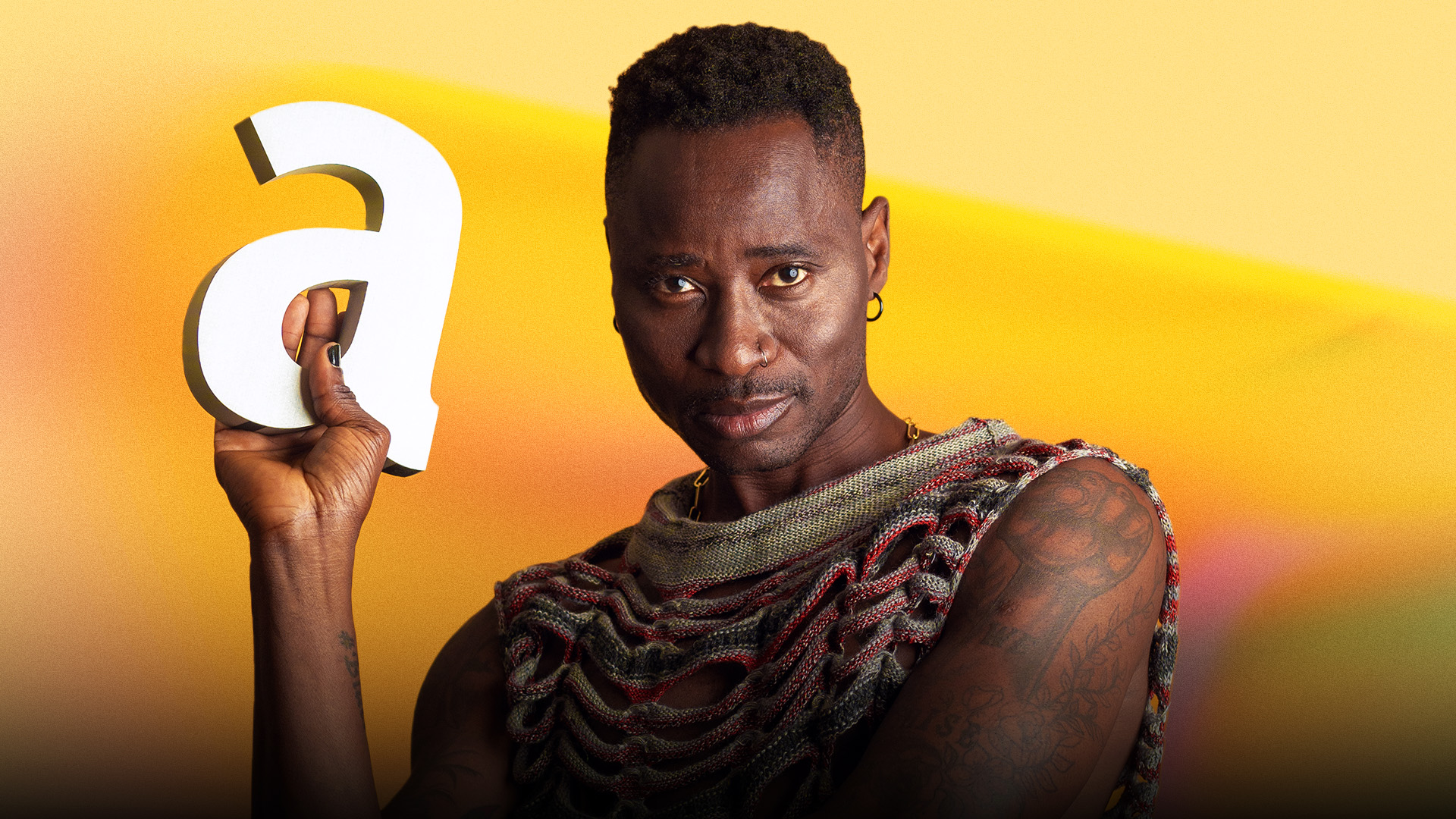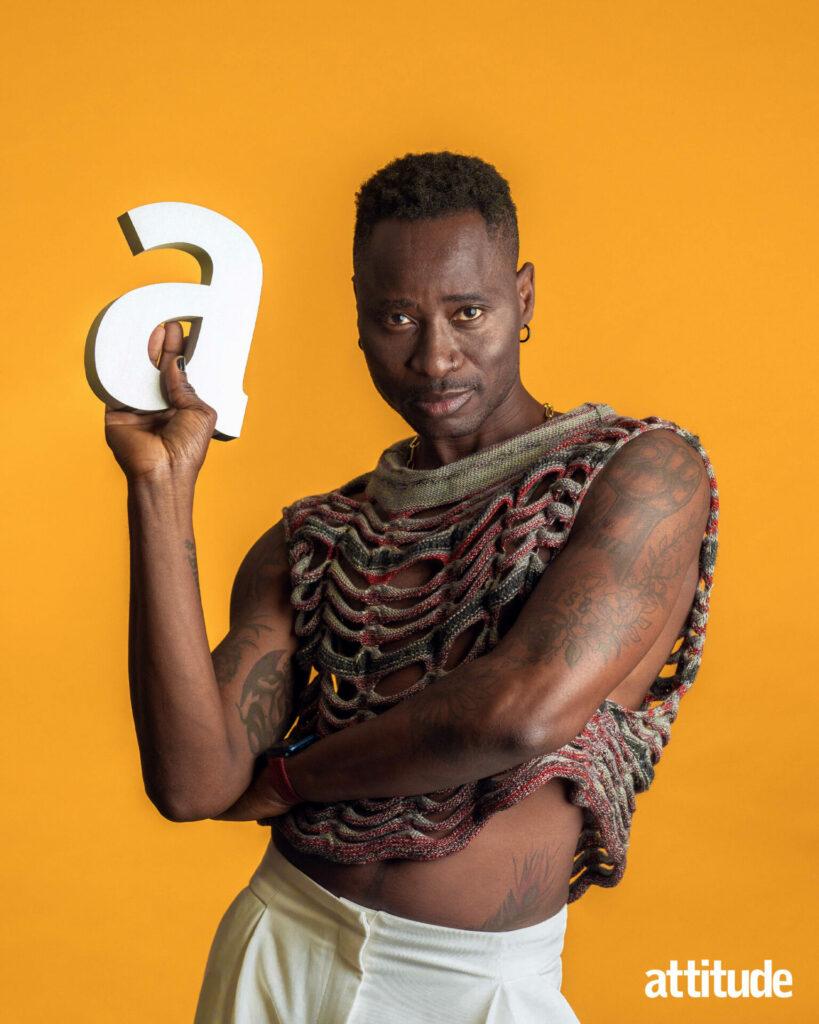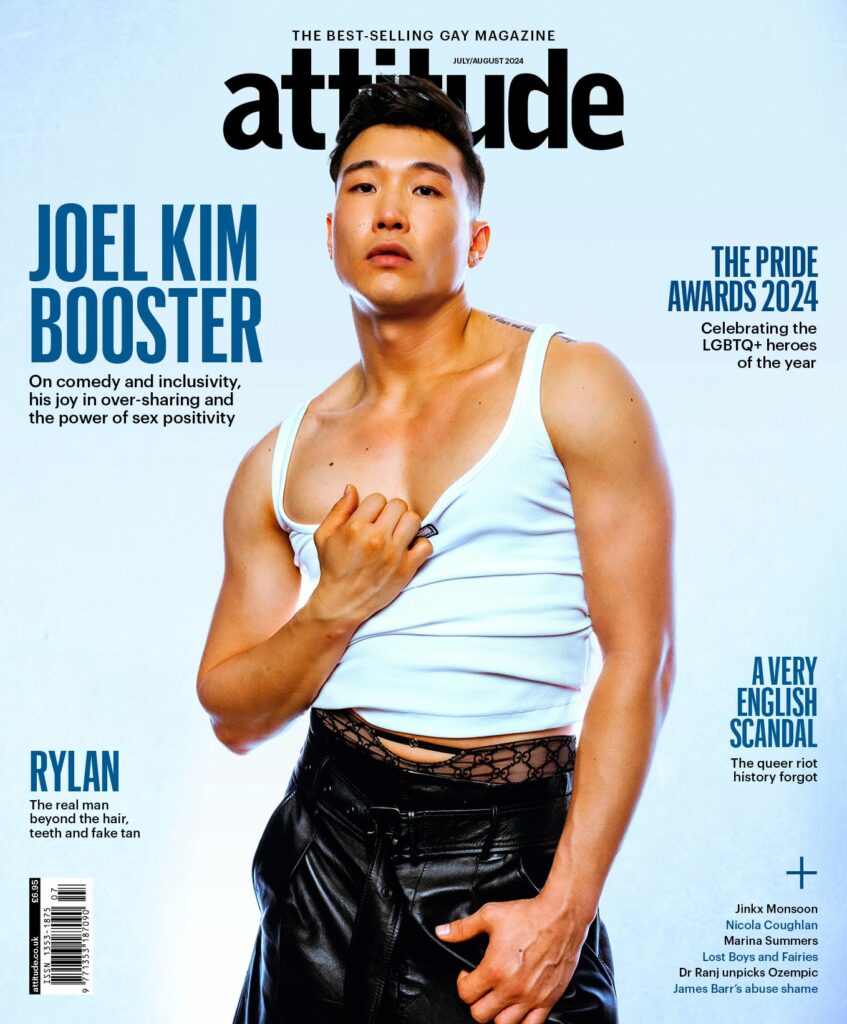LGBTQ+ activist Bisi Alimi is a champion for change
Bisi Alimi discusses being gay in Nigeria and his tireless work to make the country a safer place for LGBTQ+ people

Bisi Alimi has unfinished business in Nigeria. The British-Nigerian activist set up his self-named Foundation in 2015 in response to the passing of Nigeria’s Same Sex Marriage (Prohibition) Act in 2013. That law was influenced by Bisi’s historic coming-out on Nigerian TV in 2004 when he was a soap actor. After his experiences with Rainbow Intersection, the Kaleidoscope Trust, the Naz Project London, and The Initiative for Equal Rights, Bisi realised he could help accelerate change in his home country. Bit by bit, the PEUGEOT Attitude Pride Awards-winner is getting there.
Growing up in Lagos was a mixture of “the good, the bad, the ugly, and everything in between,” says Bisi, who hails from a religious home with a Muslim father and an evangelical Christian mother. While he describes his childhood as “traumatic”, he recognises that it made him a “rounded, determined, and assertive adult”.
From youth, Bisi felt like everything that he was taught about being gay was that it was “unholy”. As a junior pastor, Bisi was heavily involved in the church. At 17, he opened up to his friends, who encouraged him to seek help. Speaking candidly, he believes that had his friends told him being gay was OK, he would have stopped going to church. “I wanted somebody to tell me that I was dirty. I was evil, I needed help. When I heard it, it was very affirmative.” It’s a feeling he believes will resonate with many religious queer people.
“I did what I thought at that time was the right thing to do”
Shortly afterward, he sought an exorcism as a means of so-called ‘conversion therapy’. He then tried to take his own life. “What triggered it was the fact that the pastor told me that I’d been cured and that if I sin again, it’s because I don’t trust God enough. I’ve not allowed God to cure me.” For Bisi, death was a chance to escape. He shares his thoughts at the time. “If I confess my sin and I die, then I wouldn’t have to go to hell. I did what I thought at that time was the right thing to do.”
His first moment of self-acceptance came 18 months later. Then 18 and a born-again Christian, he had tried to distance himself from his gay friends. But he continued to see them, believing he could ‘convert’ them. When he was invited to a ‘gay party’, he admits he was “curious”. Laughing about it now, he recalls entering a vibrant world full of makeup, outfits and people: “That was the first time in my life I felt at home.”
It was the start of his journey. Despite being outed at university, where he studied theatre, Bisi managed to get through it, and in 2004 obtained a leading role in a Nigerian TV soap. However, with celebrity comes scrutiny. Threatened with being outed again, he decided to come out on TV on the New Dawn with Funmi programme.

“It was a defining moment for me,” shares Bisi. Afterward, he was fired from his acting role, sent numerous death threats, attacked, and had his home broken into. But the police denied anything had happened. By 2007, it was no longer safe for Bisi to stay in Nigeria and a cousin helped him reach the UK. Once here, he was offered support from family, friends, and the likes of former Pride Award-winner Rainbow Migration, a charity supporting LGBTQ+ asylum seekers. “All of these things gave me the opportunity to believe more in myself and have another goal in life.”
The Bisi Alimi Foundation runs mentoring programmes, fellowships and events, all with the aim of creating change in Nigeria, a goal Bisi is optimistic about realising. “Change is going to come. I’ve seen it all over the world. It is our responsibility to speed up the process and that is what is important to me,” he says.
“Whatever happens, the future is bright”
Bisi admits that one of the biggest challenges is when businesses promote diversity “only where it is good for their profit line”. After slamming such companies, he points to examples where the Foundation has had a positive impact. He highlights a group of lawyers who had gone through one of the Foundation’s fellowship programmes to set up a legal organisation called Minority Watch which intervenes in LGBTQ+ cases in Nigeria. Notably, they helped a trans woman escape prosecution. Elsewhere, the Foundation has invested in Nigerian businesses, increasing their income and attracting external investors. It’s also worked with Wikipedia to boost queer content from Nigeria on the site, which Bisi wishes he had been able to access himself growing up.
Lambasting the Nigerian government for its “clickbait” anti-LGBTQ+ policies while the country’s electricity supply, education and healthcare systems crumble, Bisi explains his vision for the future: “I want Nigeria to be a place I can take my husband to without having to pretend that he’s my best friend. I need to work hard to make it such.” Bisi points to greater levels of LGBTQ+ visibility elsewhere in Africa as proof that change is afoot. “Whatever happens, the future is bright,” he says.
This feature appears in Issue 359 of Attitude magazine, which is available to order online here and alongside 15 years of back issues on the free Attitude app.

